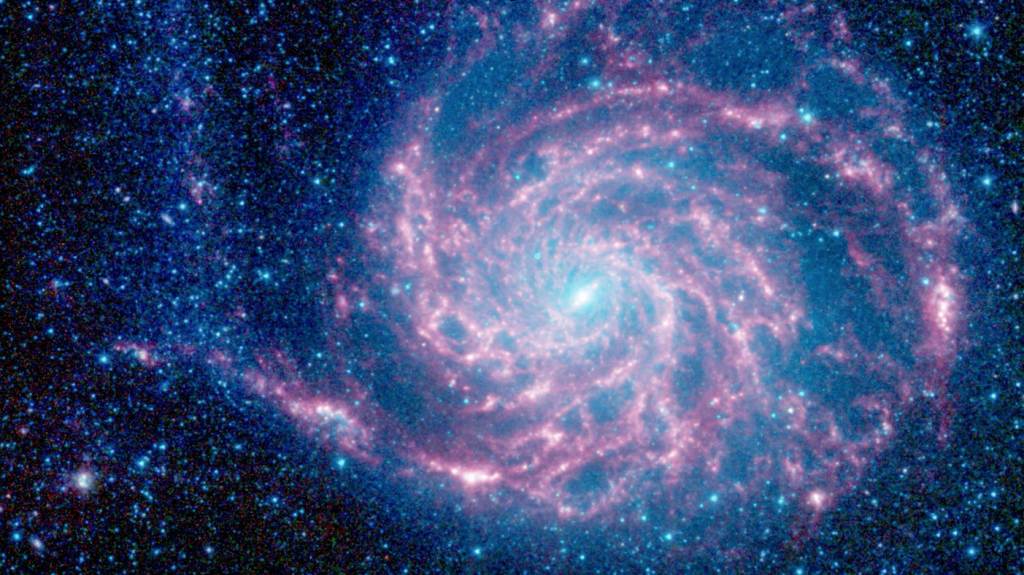Is it more likely that gods exist or do not exist? This is the third of a series of short posts about whether gods exist and why the question is an important one.
We cannot know for certain whether gods exist, just as we cannot know for certain whether many things that we believe are true.
 |
| Photo – Pinwheel galaxy Messier 101 from NASA’s Spitzer Space Telescope |
I suggest that faith and personal experience are the worst and least reliable ways of identifying what is true. They result in different people coming to different beliefs about the same reality.
Applying reason to evidence is the most reliable way. Why? Because it can more reliably result in different people coming to the same beliefs about the same reality.
When we apply reason to evidence, we notice that the idea of a god seems to be implausible, that reality and morality seem as we would expect them to be if there was no god, and that there is a relentless pattern of natural explanations replacing supernatural explanations.
For example, theists typically believe that their god is a pure mind without a body, perfect and changeless, the first cause beyond time and space, all-knowing, all-powerful and all-good. There are many reasons why this idea is implausible, which I will address in later posts.
When we look at the universe around us, reality looks like we would expect with no gods. We do not see the universe moving towards any purpose, and human life is as we would expect it to be based on natural evolution, not as the design of a human-focused god.
Morality also looks like we would expect with no god. An all-knowing, all-powerful, all-good god that is the source of morality and cares about human beings on planet Earth would at a minimum be able to give us all the same moral message.
I am happy to say about anything, including whether there are gods, that I might be mistaken. But at the moment, I am as confident that the Christian God and the Islamic Allah do not exist, as Christians and Muslims are that Thor and Zeus do not exist.
Michael Nugent is Chair of Atheist Ireland







No arguments here.
ReplyDelete